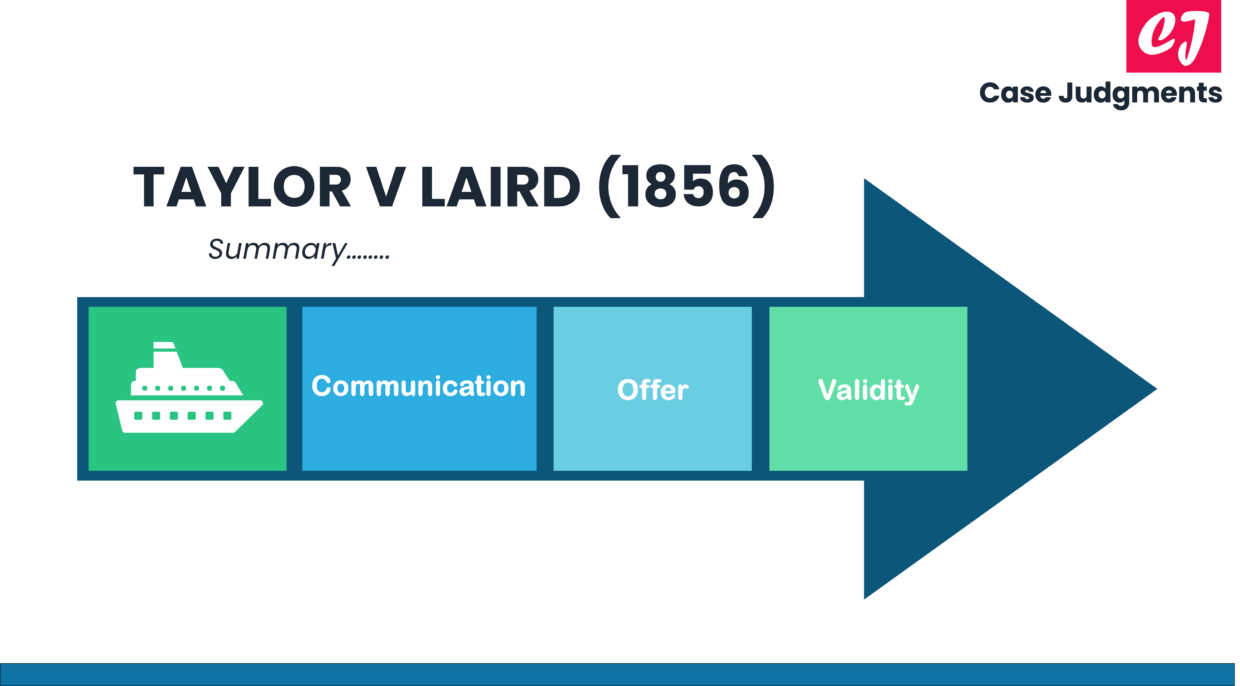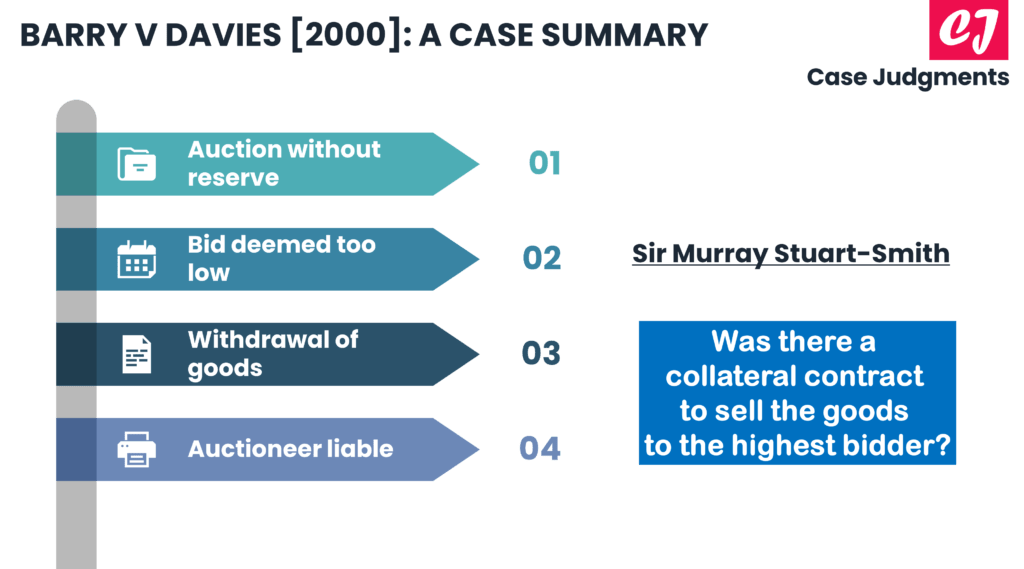
Taylor v Laird (1856): A Quick Summary
Case name & citation: Taylor v Laird (1856) 25 LJ Ex 329; (1856) 1 H & N 266
- Year of the case: 1856
- Jurisdiction: England & Wales
- Decided on: 10 June 1856
- Area of law: Communication of offer; acceptance
What is the case about?
Taylor v Laird is an English contract law case that discusses the importance of communication of an offer before it can be accepted.
Facts of the case (Taylor v Laird)
The plaintiff (Taylor) was a captain of a ship owned by the defendant (Laird). During a voyage, he decided to step down from his position as a captain and worked as a normal member of the crew. The owner was not informed of this change in position. On returning from the trip, Taylor claimed wages in the capacity of a regular crew member from the owner of the ship. But the owner refused to pay.
The owner’s contention was that he had not received any offer from the captain to work in an alternate capacity. On the other hand, the captain’s contention was that the communication of his offer to work as such could be implied by his conduct.
Issue that arose
Was the defendant bound to pay wages to the plaintiff for his work as an ordinary crew member?
Was there an offer of work by the plaintiff and if there was one, had the defendant accepted the offer?
Court’s judgment in Taylor v Laird
Based on the facts of the case, the Court decided that the ship owner was unaware of Taylor’s decision to give up his position as captain and he had not received any offer from Taylor to work in an alternate capacity. Therefore, Taylor’s claim was rejected.
It was held that there was no binding contract as regards the performance of work as a regular crew member because Laird did not have an offer from the captain to do a different job. Hence, the captain could not succeed in getting paid (for wages).
The Court concluded that it would be unreasonable to bind a party to an offer that he had not been made aware of and hence had no option to accept or reject it; as a result, accepting an offer ‘in ignorance’ is not recognized in English contract law.
Governing rule behind the case
The offeror must make the offer known to the offeree in order for it to be established as a legitimate one; an offeree cannot accept an offer they are unaware of. Since the claimant (i.e., Taylor) failed to make the offer known to the offeree, there was no contract in this instance. How can there be acceptance if the proposal is not even made known to the offeree?
List of references:
- https://academicexperts.com/cases/Taylor-v-Laird.pdf
- https://www.lawteacher.net/cases/taylor-v-laird.php
You might also like:
More from contract law:

